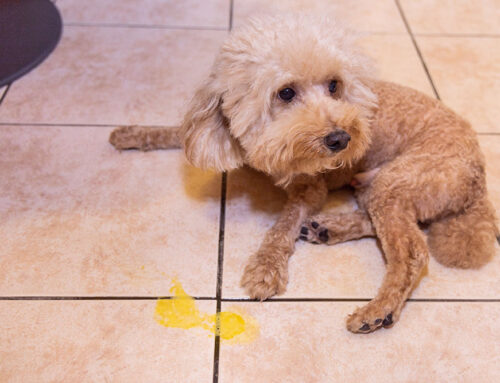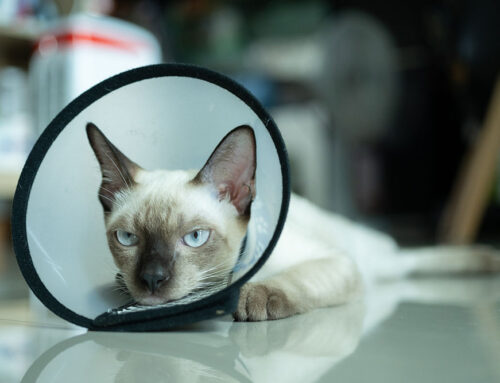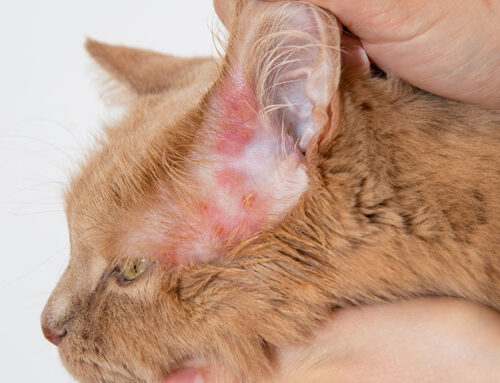You do your best to make your home comfortable and safe for you and your four-legged companion, but many household items are scattered about that threaten your pet. Many people do not realize the hidden dangers that certain items hold for their cats and dogs, so our Star of Texas Veterinary Hospital team is here to highlight the unexpected hazards of some household items. Ensure your furry pal does not have access to the following items.
Xylitol and pets
Xylitol can help prevent dental cavities in people and is also a common sugar substitute in many sweet treats, including sugar-free gum, candies, and some peanut butter brands, as well as non-edible items like toothpaste, mouthwash, cough syrup, and vitamins. Xylitol is harmless to people but can be extremely toxic to dogs by causing a rapid release of insulin, which can lead to hypoglycemia, seizures, and liver failure.
Lilies and cats
While beautiful, lilies are highly toxic to cats, especially Easter lilies, tiger lilies, and daylilies. Ingesting only a small amount of any plant part, including the leaves, petals, or pollen, can cause kidney failure in cats, and potentially death, if left untreated.
Essential oils and pets
Many pet owners use essential oils for aromatherapy or as natural remedies. However, certain essential oils, including tea tree, eucalyptus, and peppermint, can be toxic to pets if ingested or applied directly to their skin. Essential oil poisoning signs in pets include vomiting, drooling, difficulty breathing, and liver failure.
Strings and pets
Any string-like item poses life-threatening danger to pets, as the string can wrap around the tongue or become lodged in the gastrointestinal (GI) tract. Cats are notorious for playing with string, yarn, dental floss, hair ties, and rubber bands, but dogs can also swallow these items and suffer the same potentially fatal consequences.
Pennies and pets
Pennies minted after 1982 are made of zinc, which can be toxic to pets if ingested. Signs in a pet include vomiting, diarrhea, anorexia, anemia, and organ damage.
Alcohol and pets
Pets are much more susceptible to alcohol’s effects and can be poisoned by only a small amount. Alcohol toxicity can result when drinks are spilled or shared and can lead to vomiting, diarrhea, difficulty breathing, tremors, and in severe cases, coma or death.
Houseplants and pets
While true lilies are some of the most deadly houseplants for cats, many other plants can cause toxicity in pets. Philodendrons, dieffenbachia, azaleas, snake plants, sago palms, and oleander are some of the most common hazardous house and garden plants and can cause vomiting, diarrhea, drooling, difficulty swallowing, and a multitude of more serious health concerns.
Batteries and pets
Batteries contain corrosive materials, such as acids and heavy metals, that can harm pets who chew or ingest them. Battery ingestion can cause chemical burns, GI blockages, and other serious injuries.
Nicotine products and pets
Nicotine products, including cigarettes, e-cigarettes, nicotine gum, and nicotine patches, can be toxic to pets if ingested. Nicotine poisoning can cause vomiting, diarrhea, tremors, seizures, and death in pets.
Silica gel packets and pets
These small packets, often found in packaging to absorb moisture, appeal to pets because of their texture and smell. However, if ingested, silica gel can cause a GI upset, including vomiting and diarrhea. While not usually life-threatening, it’s best to keep these packets out of pets’ reach.
Playdough and pets
Modeling compounds like playdough and silly putty often intrigue pets, but if ingested, they can cause a GI obstruction. These products have a sticky texture that can be difficult for pets to pass through their digestive tract. Additionally, homemade play dough often has a high salt content that can lead to poisoning.
Dryer sheets and pets
Dryer sheets contain chemicals and fragrances that can be harmful to pets. Ingestion can cause GI upset and blockages, while inhalation of the potent chemicals can lead to respiratory irritation.
Nail polish and pets

Nail polish and remover contain chemicals that can be toxic to pets if ingested, leading to GI upset.
Sponges and pets
Pets may be attracted to the texture and smell of used sponges and dishcloths, but if ingested, these items can cause a GI obstruction. Additionally, if these items have been used with cleaning chemicals, they are likely toxic.
Adhesives and pets
Glues, tapes, and adhesives can be hazardous if ingested by pets. These products can cause a GI obstruction and may contain toxic ingredients, such as solvents or chemicals.
Remember, prevention is key to keeping your pet safe and healthy. By being aware of these potential hazards and taking steps to prevent accidental exposure, you can keep your four-legged friend safe from harm. However, pets can find themselves in trouble despite their owner’s best efforts, so if you suspect your pet has ingested something toxic, contact an animal poison control center or our Star of Texas Veterinary Hospital team immediately.






